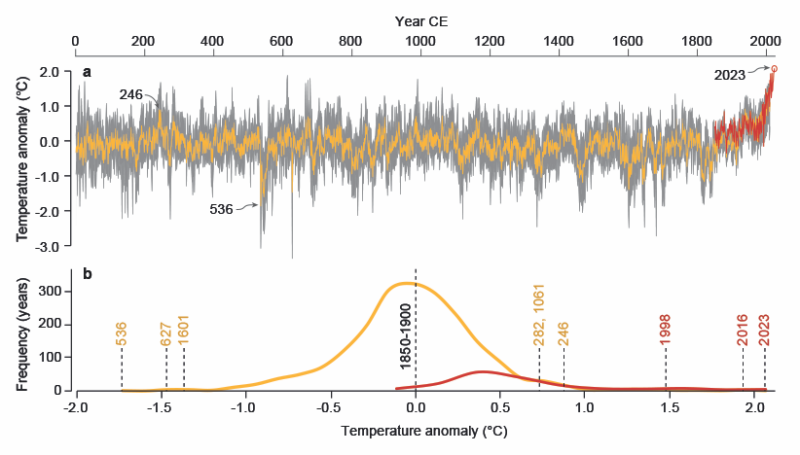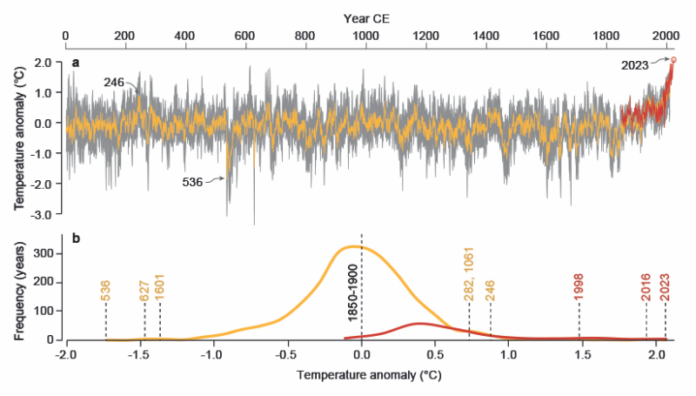
Enlarge / Top: a look through the past 2,000 years of summertime temperatures, showing that 2023 is considerably warmer than anything earlier. Bottom: a bell curve of the typical temperatures, showing that the hot outliers are all recent years. (credit: Esper, Torbenson, and Büntgen)
Starting in June of last year, global temperatures went from very hot to extreme. Every single month since June, the globe has experienced the hottest temperatures for that month on record—that's 11 months in a row now, enough to ensure that 2023 was the hottest year on record, and 2024 will likely be similarly extreme.
There's been nothing like this in the temperature record, and it acts as an unmistakable indication of human-driven warming. But how unusual is that warming compared to what nature has thrown at us in the past? While it's not possible to provide a comprehensive answer to that question, three European researchers (Jan Esper, Max Torbenson, and Ulf Büntgen) have provided a partial answer: the Northern Hemisphere hasn't seen anything like this in over 2,000 years.
Tracking past temperatures
Current temperature records are based on a global network of data-gathering hardware. But, as you move back in time, gaps in that network go from rare to ever more common. Moving backwards from 1900, the network shrinks to just a few dozen land-based thermometers, almost all of them in Europe.
Read 12 remaining paragraphs | Comments
Ars Technica - All contentContinue reading/original-link]




